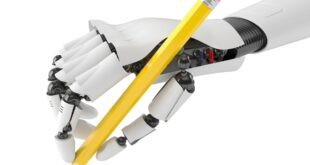
Amazon today announced it has agreed to acquire Zoox, a startup developing autonomous vehicle systems principally for ride-hailing applications. Neither company disclosed the terms of the deal, but according to The Information and the Financial Times, the purchase price is in excess of $ 1.2 billion.
It’s Amazon’s biggest bet yet on autonomous technologies — whether vehicular, aeronautic, or industrial in nature. Last February, the company contributed to the $ 530 million series B round closed by driverless car and truck startup Aurora, following its $ 777 million acquisition of warehouse robotics startup Kiva System
With Zoox, Amazon — which delivers more than 10 billion items worldwide each year — gains a source of cost savings. Analysts at Morgan Stanley estimate self-driving technology could save the tech giant over $ 20 billion a year on shipping as it becomes a formidable competitor to companies like UPS, DHL, and FedEx. By 2023, Amazon is expected to spend $ 90 billion on logistics expenditures, concentrated on the expansion of its truck trailer, ocean freighter, last-mile delivery van, and cargo jet networks.
“Zoox is working to imagine, invent, and design a world-class autonomous ride-hailing experience,” said Amazon CEO of global consumer Jeff Wilke in a statement. “Like Amazon, Zoox is passionate about innovation and about its customers, and we’re excited to help the talented Zoox team to bring their vision to reality in the years ahead.”
The story so far
Zoox was founded in 2014 by Australian artist-designer Tim Kentley-Klay and Jesse Levinson, the son of Apple chairman Arthur D. Levinson, who was developing self-driving technology at Stanford. In December 2018, it became the first to gain approval for providing driverless transport services to the public in California. And in January 2019, the company appointed former Intel chief strategy officer Aicha Evans CEO, signaling a shift in priorities from conceptualization to commercialization.
Foster City, California-based Zoox had raised over $ 990 million in venture capital at a multibillion-dollar valuation, and it appeared to be making progress toward a commercial launch before testing of its live level 3 vehicles ground to a halt as a result of the coronavirus pandemic. The company recently announced it would begin deploying autonomous Highlanders in Las Vegas for blocks of time — it has a permit from the Nevada Department of Motor Vehicles to transport passengers autonomously — and it submitted documents to the California DMV showing its 58 vehicles drove 67,015 autonomous miles in 2019 in San Francisco.
Eventually, Zoox had hoped to move beyond retrofitted Highlanders to fully custom cars that could be summoned by customers via a smartphone app. The roughly BMW i3-sized electric vehicles would’ve used cameras and four lidar sensors for perception, each of which will be able to see 270 degrees, along with four-wheel steering, active four-wheel suspension, dual power trains, and dual batteries with a combined capacity larger than that of most single-car batteries today.
The idea was to reduce congestion through fleet management and to minimize trips back to base stations for charging overnight. Zoox’s shuttle-like car — which was fully driverless — was designed to operate in a shared fleet in order to maximize efficiency and cut down on ride trip times.
Indeed, the focus on efficiency likely appealed to Amazon’s newfound conservationist sensibilities. In February 2019, Amazon led a $ 700 million funding round in Rivian, a Michigan-based startup developing electric pickup trucks, which the company claims will save an estimated 4 million metric tons of carbon per year by 2030. Amazon plans to have 10,000 of Rivian’s vehicles making on-the-road deliveries as early as 2022 and 100,000 vehicles on the road by 2040.
Plans
According to Amazon, Zoox founders Aicha Evans (CEO) and Jesse Levinson (CTO) will continue to lead Zoox as a standalone business, and that Amazon was buying the company to help “bring their vision of autonomous ride-hailing to reality.” Aside from that, the company gave little away in terms of how it will leverage the technology. It’s possible Amazon could convert Zoox’s planned robo-taxis into automated delivery vans further down the road, a task for which it certainly has the expertise. According to Reuters, Amazon holds more than 210 transportation-related patents, including a 2017 patent to provide on-demand transportation services through a network of autonomous vehicles.
Zoox previously said it was demonstrating its vehicle for partners and insiders behind closed doors, but the next phase of its deployment plans remain unclear. Acquisition aside, Zoox reportedly laid off 10% of its 1,000-person workforce days after letting go of 120 contract workers, moves it blamed on the economic fallout from the pandemic. And it said that it would pay Tesla an undisclosed amount of monetary damages and undergo an audit to settle a trade secret theft lawsuit filed last year in which Tesla claimed that some of its former employees brought proprietary information with them to Zoox.
According to The Information, a majority of Zoox investors — among them Lux Capital, DFJ, Primavera Capital, and Atlassian cofounder Michael Cannon-Brooks’ Grok Ventures — will see a return from the purchase. Still, the reported $ 1 billion price tag supports the notion that autonomous vehicle development remains expensive. Ford and Volkswagen partner Argo AI recently closed a $ 2.6 billion round at a $ 7.25 billion valuation. In May, Didi Chuxing’s self-driving unit nabbed $ 500 million led by SoftBank’s Vision Fund 2. And in March, Waymo managed to secure a $ 750 million extension of its first external round to $ 3 billion,
The race for runway has taken on greater urgency as the pandemic roils the economy. While startups like Gatik, Optimus Ride, TuSimple, and Nuro have escaped the worst of it so far, well-financed ventures including Cruise, Kodiak Robotics, and Ike have shed hundreds of employees collectively.
Analysts predict the health crises and its effects will result in consolidation, tabled or canceled launches, and shakeups across the autonomous transportation industry. In something of a case in point, Ford pushed the unveiling of its self-driving service from 2021 to 2022, and Waymo CEO John Krafcik told the New York Times the pandemic delayed work by at least two months.
According to Boston Consulting Group’s Brian Collie, broad commercialization of AVs won’t happen before 2025 or 2026 — at least three years later than originally anticipated.



